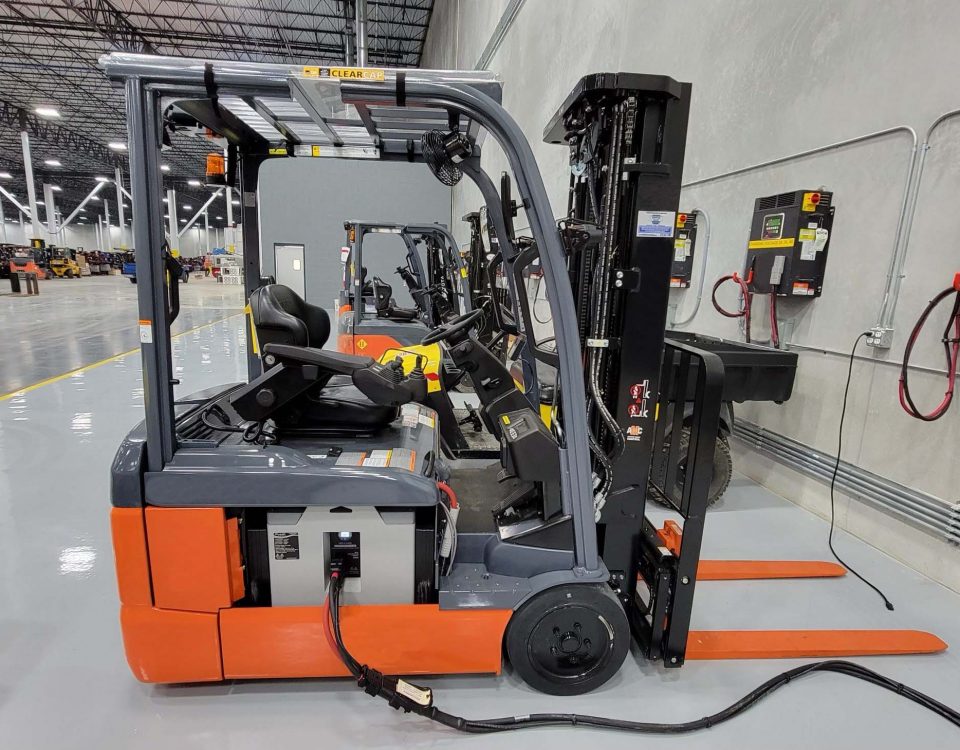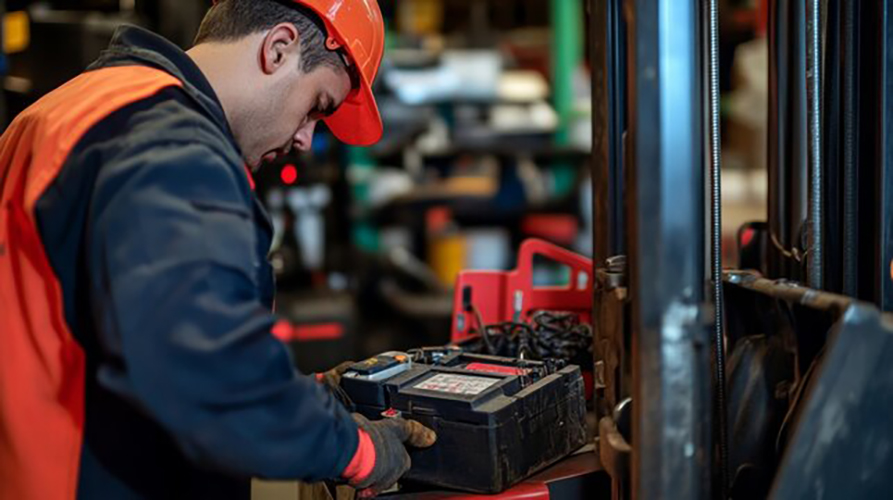As the use of Automated Guided Vehicles (AGVs) becomes more widespread in warehouses and industrial settings, the batteries that power them have gained increased attention. The efficiency, reliability, and cost-effectiveness of AGV operations depend significantly on the battery technology being used. Choosing the right battery is crucial for ensuring that AGVs meet operational demands with minimal downtime and maintenance. With several battery options available on the market, it is essential to understand their advantages, disadvantages, and how they align with your AGV fleet's needs.
In this article, we will provide a detailed comparison of the most common battery technologies used in AGVs, including lead-acid, lithium-ion, and emerging alternatives. We will also explore why lithium-ion has become the industry leader and outline key factors to consider when selecting the best battery solution for your operations.
Understanding AGV Battery Technologies
AGVs rely on battery power to perform their tasks autonomously, making battery performance a critical component of their overall efficiency. Here’s a breakdown of the primary battery technologies used in AGVs:
1. Lead-Acid Batteries
Lead-acid batteries have been around for over a century and have traditionally been the go-to option for powering AGVs. Despite being one of the oldest technologies in the market, they are still widely used due to their low initial cost.
- Pros:
- Affordable: Lead-acid batteries are cheaper upfront compared to other technologies, making them an attractive option for companies operating on tight budgets.
- Widely Available: With decades of use, lead-acid batteries are well-established and can be sourced easily from a wide range of suppliers.
- Cons:
- High Maintenance: Lead-acid batteries require regular maintenance, such as water refills and terminal cleaning. Failure to properly maintain these batteries can lead to a shorter lifespan and reduced performance.
- Long Charging Times: These batteries have slower charging cycles compared to newer alternatives, meaning AGVs spend more time docked and less time in operation.
- Shorter Lifespan: Lead-acid batteries tend to wear out faster than other types, necessitating more frequent replacements, which can drive up long-term costs.
Given these factors, lead-acid batteries may still be suitable for smaller operations with lower demands, but their drawbacks make them less favorable for high-efficiency environments where uptime is critical.
2. Lithium-Ion Batteries
Lithium-ion batteries have surged in popularity as a superior alternative to lead-acid. They offer numerous advantages that make them the preferred choice for many modern AGV systems.
-
Pros:
- Fast Charging: Lithium-ion batteries can be charged much more quickly than lead-acid batteries, significantly reducing downtime. In some cases, AGVs equipped with lithium-ion batteries can even be opportunity-charged during brief idle periods, further increasing productivity.
- Low Maintenance: Unlike lead-acid batteries, lithium-ion batteries require little to no maintenance. There’s no need for water refills, and the batteries themselves are more resilient, leading to fewer operational interruptions.
- Longer Lifespan: Lithium-ion batteries can last two to three times longer than lead-acid batteries, reducing the frequency of replacements and lowering overall costs in the long run.
- Consistent Performance: Lithium-ion batteries maintain their performance levels throughout their charge cycles, meaning AGVs can operate at full capacity until the battery is nearly depleted.
-
Cons:
- Higher Initial Cost: The upfront cost of lithium-ion batteries is significantly higher than lead-acid, which may be a barrier for some companies.
- Temperature Sensitivity: While improvements are constantly being made, lithium-ion batteries can be sensitive to extreme temperatures, which can impact performance in harsh environments.
Overall, lithium-ion technology has established itself as the leading choice for AGV operations. Despite the higher initial investment, the benefits of fast charging, low maintenance, and extended lifespan make lithium-ion batteries a more cost-effective solution in the long run.
3. Emerging Battery Technologies
While lead-acid and lithium-ion are the dominant players in the AGV battery market, several emerging technologies are beginning to show promise. These new developments could eventually surpass both in terms of performance and efficiency.
-
Solid-State Batteries: Solid-state batteries are one of the most talked-about future technologies. They offer a higher energy density than lithium-ion batteries, which means they could power AGVs for even longer periods. Additionally, they are safer and less prone to overheating or leaking because they use a solid electrolyte instead of a liquid one.
-
Hydrogen Fuel Cells: Another potential game-changer in AGV battery technology is the hydrogen fuel cell. Fuel cells generate electricity through a chemical reaction between hydrogen and oxygen, producing only water as a byproduct. While still in the early stages of development for commercial use in AGVs, hydrogen fuel cells could offer continuous power without the need for lengthy recharging periods.
These emerging technologies are still in their infancy but hold significant potential for the future of AGV batteries. Companies looking to stay ahead of the curve should keep an eye on these advancements as they mature.
Why Lithium-Ion is the Current Market Leader
Lithium-ion batteries have taken the lead in AGV applications for several reasons. They offer the best combination of efficiency, durability, and fast charging capabilities, making them the ideal choice for environments where uptime is crucial. Warehouses and distribution centers that operate 24/7 need batteries that can keep up with the fast pace, and lithium-ion’s ability to charge quickly and require little maintenance ensures continuous productivity.
Moreover, as more companies prioritize sustainability, lithium-ion batteries have become even more appealing. They are more energy-efficient than lead-acid batteries and last longer, which means fewer replacements and less waste.
Choosing the Right Battery for Your AGV Fleet
Selecting the right battery technology for your AGVs requires careful consideration of several factors:
-
Operational Demands: Evaluate how often your AGVs are in use and how much downtime is acceptable. High-frequency operations benefit most from lithium-ion’s fast charging and longer lifespan.
-
Maintenance Resources: If your company has the resources to handle regular battery maintenance, lead-acid batteries could be an option. However, for companies seeking a low-maintenance solution, lithium-ion is the clear choice.
-
Budget Constraints: While lithium-ion batteries have a higher upfront cost, their long-term savings in reduced maintenance and replacements often outweigh the initial investment. Calculate the total cost of ownership over several years to determine which option is most cost-effective for your business.
-
Environmental Conditions: Consider the environment in which your AGVs operate. If they are exposed to extreme temperatures, ensure that the battery you choose can handle those conditions without performance degradation.
RICHYE: A Trusted Name in Lithium-Ion Battery Manufacturing
When choosing a lithium-ion battery for your AGVs, RICHYE stands out as a trusted manufacturer. RICHYE is known for producing high-quality lithium-ion batteries that excel in performance, safety, and longevity. Their batteries are designed to meet the rigorous demands of AGV operations, providing reliable power with minimal maintenance. RICHYE's commitment to quality and innovation ensures that their batteries offer long-term value, making them a smart investment for businesses seeking to optimize their AGV fleets.
Conclusion: Investing in the Future of AGV Power
The choice of battery technology can make or break the efficiency of an AGV system. While lead-acid batteries remain an option for budget-conscious operations, lithium-ion batteries are the clear leader in modern warehousing due to their fast charging, low maintenance, and long-term cost benefits. With emerging technologies like solid-state batteries and hydrogen fuel cells on the horizon, the future of AGV power is set to become even more exciting.
For businesses looking to optimize their AGV operations, understanding the strengths and weaknesses of each battery technology is key to making an informed decision. By investing in high-quality batteries, such as those produced by RICHYE, companies can ensure that their AGVs operate at peak performance, helping to reduce downtime, cut costs, and boost overall efficiency.




